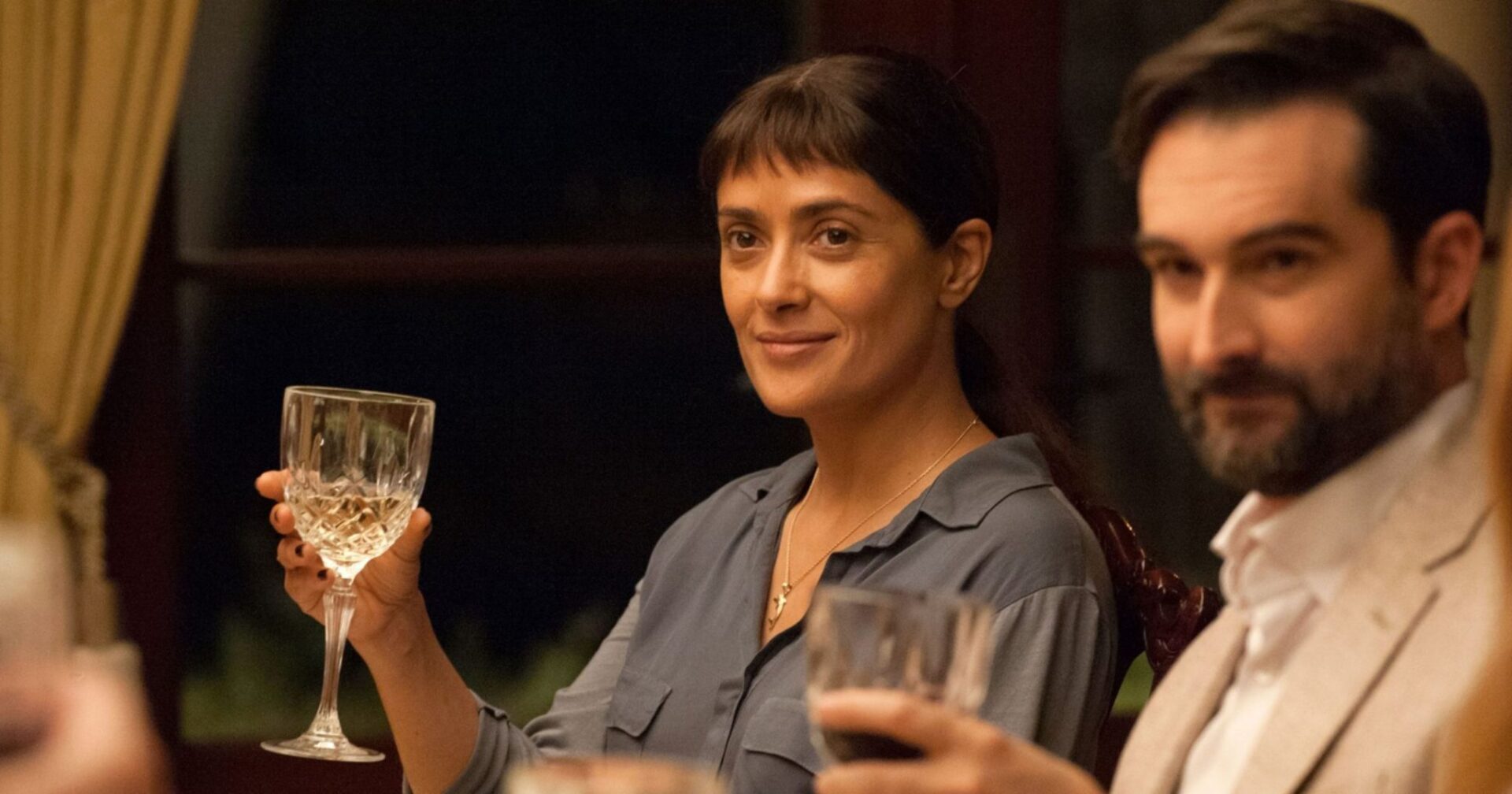There are films that make their stamp by their mere existence. As much as film writers love to explore the specifics of technical specifics such as quality of editing, dynamic cinematography, or special effects, sometimes all that’s necessary for a film to achieve greatness is a good set, a great cast of actors, and a hell of a script, assuming the scale of the story the film is telling is appropriate for that modest attempt. Beatriz at Dinner is just one of these small scale productions, but its aspirations are anything but modest, as it showcases some of the best performances we’re likely to see all year in a story that is at once intimately personal and earth-shatteringly universal in its relevance.
Beatriz (Salma Hayek) is a holistic healer who works part-time as masseuse in order to make ends meet. One day as she is massaging a wealthy client (Connie Britton), her car breaks down, stranding her as this client and her husband (David Warshofsky) prepare for a dinner party with some business associates. Beatriz stays for dinner, interacting with the wealthy echelons of American business and coming to realize the terrible reality of who she is spending time with.
Hayek delivers the performance of a career as a Mexican immigrant with not much in the way of traditional schooling, but is very intelligent with a passion for healing and preserving the world against the capitalistic forces that do damage to the environment and the impoverished. These are in turn personified by dinner guest Doug Strutt (John Lithgow), a real estate mogul who leads a cackling crew of tone deaf sycophants (played perfectly to type by Chloë Sevigny, Amy Landecker, and Jay Duplass) in a torrent of microaggressions, dismissals, and interruptions that betray attitudes of cultural and racial supremacy as they celebrate further wealth at the misfortune of others. What results is a drama of manners in which Beatriz is constantly torn between being a polite guest and standing up for what she believes in as she is ridiculed by smiling faces that expect her to take it in stride, and the tension is palpable and fragile enough to be cut with a butter knife. Director Miguel Arteta and cinematographer Wyatt Garfield do an excellent job of framing Beatriz as a woman apart from her captors, held in a cage of niceties that pushing against would cause the entire party to turn against her.
What elevates Beatriz at Dinner into the realm of brilliance, though, is in how the villains of this piece don’t see themselves as such, but are quick to dismiss any confrontation of their cloistered worldview as simply Beatriz’s emotions running high, or that they do minor good for the world along with their willfully ignorant evil, or that they have only good intentions and that they only want to live life to the fullest. These are characters unfamiliar with listening to perspectives different from their own, but they are so comfortable in their ignorance that they refuse to even attempt an understanding of why Beatriz might be upset with them. It’s a brutal examination of American classism that highlights precisely why the wealthy lack the necessary empathy to counteract the harm they do to the world.
Alternately fatalistic and hopeful, Beatriz at Dinner is a roller coaster of emotional payoff, taking a small and modest offering and exploding what one’s expectations might be for a film about people sitting around a dinner table talking. It’s not a flashy film because it doesn’t need to be; much like its protagonist, it shows up, makes a point, and, while acknowledging that the encounter won’t bring about any immediate change, plants a seed of hope that the struggle is at least somewhat worthwhile. This is a film that will blow you away if you give it a chance to say its piece, and listening is the very least any of us can do.













